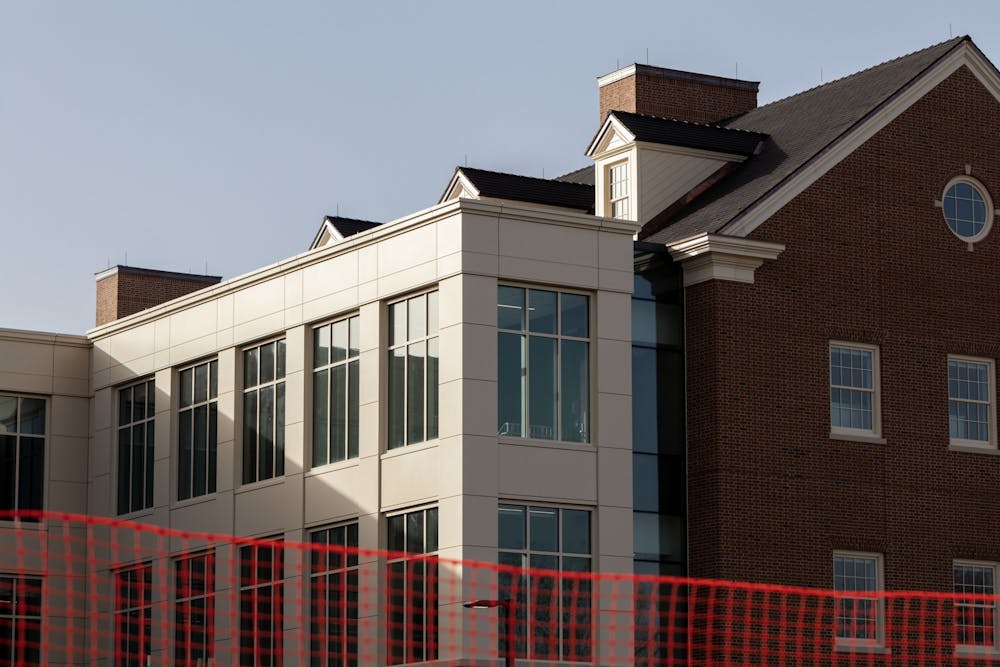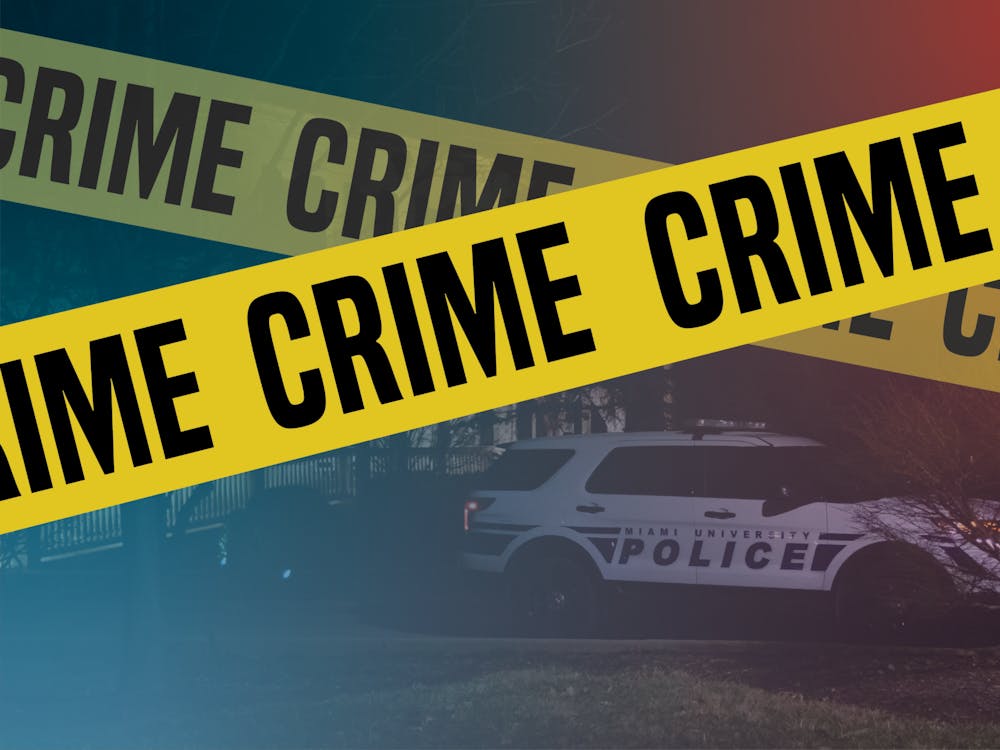Miami University’s Student Counseling Services (SCS) started the school year in fashion with a newly constructed building in a more accessible location.
They’re also, however, starting shorthanded.
With four vacancies remaining even after a summer of candidate searching, SCS is preparing to meet the needs of Miami students despite lower staffing.
John Ward, director of SCS, said Miami isn’t alone in its difficulty hiring counselors — universities across the country are seeking to meet a surging demand for mental health resources for students, and supply has yet to catch up.
“We have all these open positions because there’s a lot of hiring going on,” Ward said, “which creates a situation where mental health clinicians really have their choice of job opportunities that they didn’t have before.”
An industry-wide trend
Mental health needs for college students — and everyone — skyrocketed during COVID-19. This was partly driven by heightened feelings of loneliness, anxiety and grief, as well as increased conversations surrounding mental well-being, the importance of self-care and the availability of counseling and therapy.
“There has been a concerted effort across the country, across the world really, in terms of paying attention to the mental health of various different groups of people,” Ward said. “What that then created was more resources and funds on a national scale being devoted to mental health care.”
As colleges are ramping up their counseling capacity, so are private practices, hospitals, telehealth websites and corporations. However, Ward said, collegiate mental health has undergone more hiring than anywhere else, over an even longer period.
From 2012 to 2022, the SCS counseling staff doubled in response to the growing need: 5,699 individual counseling appointments occurred in the 2014-2015 academic year. By 2018-2019, there were 8,616. By 2021-2022, after the COVID-19 shock, the number was 10,130, and sessions remained roughly the same last year, with 10,064.
Jayne Brownell, vice president of Student Life at Miami and head of the Mental Health Task Force, said levels have stayed relatively the same as in 2021 because of reduced stigma in seeking out help, but have plateaued as conversations around mental health shift.
Enjoy what you're reading?
Signup for our newsletter
“The language of mental health overtook the language of the regular ups and downs of emotions,” Brownell said. “In 2o20-2021, nobody was sad, everybody was depressed. Nobody was anxious, everyone had an anxiety disorder. In reality, it was a very difficult time for everybody.”
However, Brownell acknowledged that there are certainly people who have depression and anxiety disorders who need professional intervention and support.
“We want to make sure that all of those are getting counseling,” Brownell said. “We also want to make sure we’re offering programming around wellness and emotional well-being to help students manage the more short duration distress related to things going on in their environment. “
How vacancies will and won’t impact services
Ward said that despite the vacancies, counselors won’t be taking on more patients as there are limits put in place to prevent burnout and ensure high-quality care. However, that doesn’t mean wait time will increase exponentially.
SCS offers a stepped care plan that matches an individual's mental health needs with an appropriate level of treatment. Students meet individually with a counselor as a preliminary assessment within one to three days of calling. From there, those who are in the most urgent need of care are prioritized.
Ward said that while some patients may require referrals for long-term treatment, other's needs are met with just two or three counseling sessions. And they may find success in different modes, such as group therapy.
“We offer group, not because we don’t have enough space in individual therapy — we offer group therapy because it works,” Ward said. “Folks can really address the concerns they have in that format sometimes more efficiently or quicker than they may in an individual setting.”
The SCS hasn’t seen any significant impacts of the vacancies yet, although Ward anticipates this may change as students get deeper into the semester. Around mid-October, when most midterms take place, through finals week is when SCS gets the most traffic.
“I hope we all have grace for one another as a community,” Ward said. “There might be brief pain points as we adjust to this reality we have right now, but we have a long tradition of our system working and the university community getting through different situations like this.”
Individual therapy will likely be more affected than other modes like group or pet therapy.
“I do think the pinch that we will feel as a community will be one-on-one counseling,” Ward said. “This is what most students gravitate toward in their minds, so that’s probably where we could develop a bottleneck first.”
However, Ward emphasized that students should seek support at SCS if they’re in distress.
“Please still refer to student counseling,” Ward said. “I don't want folks to hear there are some vacancies that we’re actively trying to fill and think, ‘I shouldn’t reach out.’”
Communicating the benefits of counseling
Shelby Alford, a senior psychology major and secretary for Safety and Student Wellness in Miami’s Associated Student Government (ASG), has worked closely with Dr. Ward to help communicate the offerings of SCS to students. Alford encourages any students experiencing distress to make an appointment with SCS.
“Your first [four] appointments are free, and it’s so close, so you can really only benefit from trying it,” Alford said. “Everyone can benefit from therapy, it just helps to talk through things with someone, and sometimes students don’t realize that the thoughts or feelings that they have are symptomatic of something bigger.”
For students who see therapists at home but can’t meet with them at Miami due to location or insurance, SCS can refer them to clinicians either nearby or on telehealth following their first intake meeting. If students don’t have insurance or cannot travel for therapy, SCS can make accommodations and continue treating them in-house.
Alford said that as of Sept. 26, seven students were on the SCS waiting list — all of which will be met with by the end of the week.
Ward said he is unsure of when the vacancies will be filled. Hiring, he said, tends to ramp up in January in anticipation of the following year, although they may find new hires before then.
“I expect that things are going to turn out just fine,” Ward said. “It’s just the uncomfortableness of waiting.”




